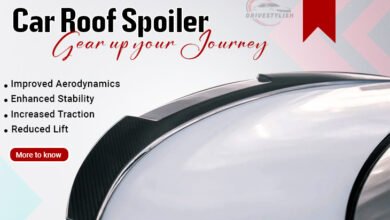What You Need to Know About Tire Pressure and Electric Cars

With so many benefits to driving electric, it’s great that more people are making the switch. One of the biggest misconceptions about electric cars is that they don’t need to be maintained the same way gas-powered vehicles do. However, while there are plenty of things you can do to help an EV along its journey, one thing you can’t do much about is tire pressure.
How To Check
You can check your tire pressure in a few different ways. The easiest is to use a digital tire pressure gauge. If you don’t have one, you can also use a pen-type pressure gauge. To check your tire pressure, remove the valve cap and press the gauge firmly onto the valve stem. Read the pressure on the gauge and compare it to the manufacturer’s specification. If it’s low, add air until it reaches the proper level.
How Much Does Tire Pressure Matter?
In EVs, tire pressure is everything. It’s best to keep your tires at manufacturer specifications. Tires are the only contact point between your car and the road, so it’s important to make sure they’re in good condition. If you have low tire pressure, it can affect your car’s handling, braking, and even its range. If you notice any changes or abnormalities in your tire pressure, bring it to a mechanic immediately. There are three things that might cause low tire pressure:
1) Low air from not checking before driving long distances; 2) high heat from sitting in direct sunlight for extended periods of time; 3) too much weight on one side of the vehicle.
When Should I Check My Tires?
Tire pressure is something that is often overlooked, but it is important to keep an eye on, especially if you have an electric car. The best time to check your tire pressure is when the tires are cold, so either first thing in the morning or after the car has been parked for a few hours. You should also check your tires before a long road trip.
How Often Should I Check My Tires?
You should check your tire pressure at least once a month, and more often if you notice that your tires are losing air quickly. It’s also a good idea to keep an eye on your tire tread depth. The minimum tread depth for passenger cars in the U.S. is 2/32 of an inch.
Benefits of Correctly Inflated Tires
Tire pressure is extremely important in electric vehicles for a number of reasons. First, correctly inflated tires can help improve your range. Second, they can improve the efficiency of your car, meaning you’ll use less energy overall. Third, they can extend the life of your tires. Fourth, they can improve handling and stability. Fifth, they can help you avoid getting stranded on the side of the road. Sixth, they can improve your safety. Seventh, they can save you money in the long run. Correctly inflated tires are significantly cheaper than replacing them. Eight, they will minimize tire wear and the need for rotations. Ninth, they will reduce the risk of a blowout from low air pressure. Lastly, if you have four-wheel drive or all-wheel drive vehicle it’s especially important to maintain proper tire inflation because this type of vehicle uses more fuel when driving on underinflated tires.
Benefits of Under-Inflated Tires
While under-inflated tires may not seem like a big deal, they can actually have a significant impact on your electric car. For one, under-inflated tires your range. This is because the rolling resistance of the tire increases as it loses air, which means that your car has to work harder to move forward. Additionally, under-inflated tires can negatively impact your car’s handling and braking. So, if you’re driving an electric car, be sure to check your tire pressure regularly!
Safety Issues
One of the most important things to know about electric cars is that tire pressure is everything. It’s best to keep your tires at manufacturer specification. If you’re not sure what that is, check your owner’s manual or look online. Under-inflated tires can lead to decreased range and increased charging time, while over-inflated tires can lead to decreased traction and stability. If you have any questions, be sure to ask a qualified marsubil technician.




